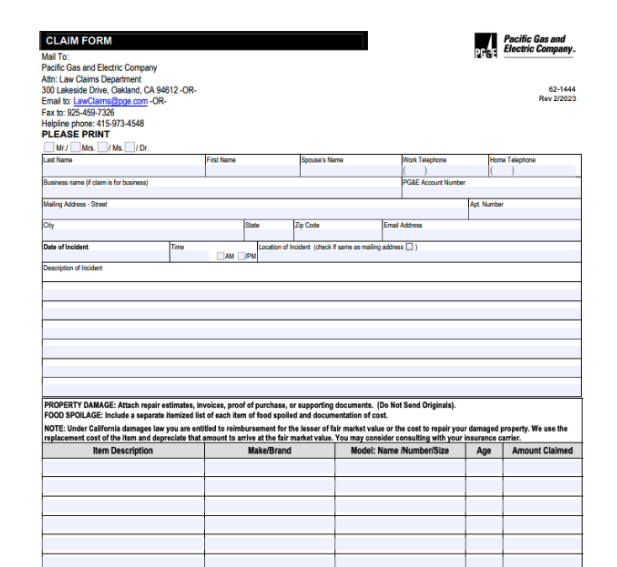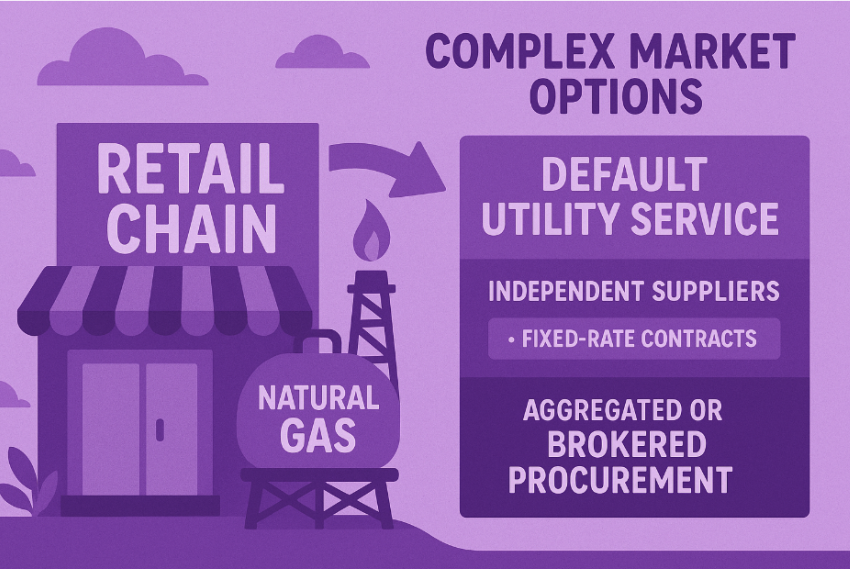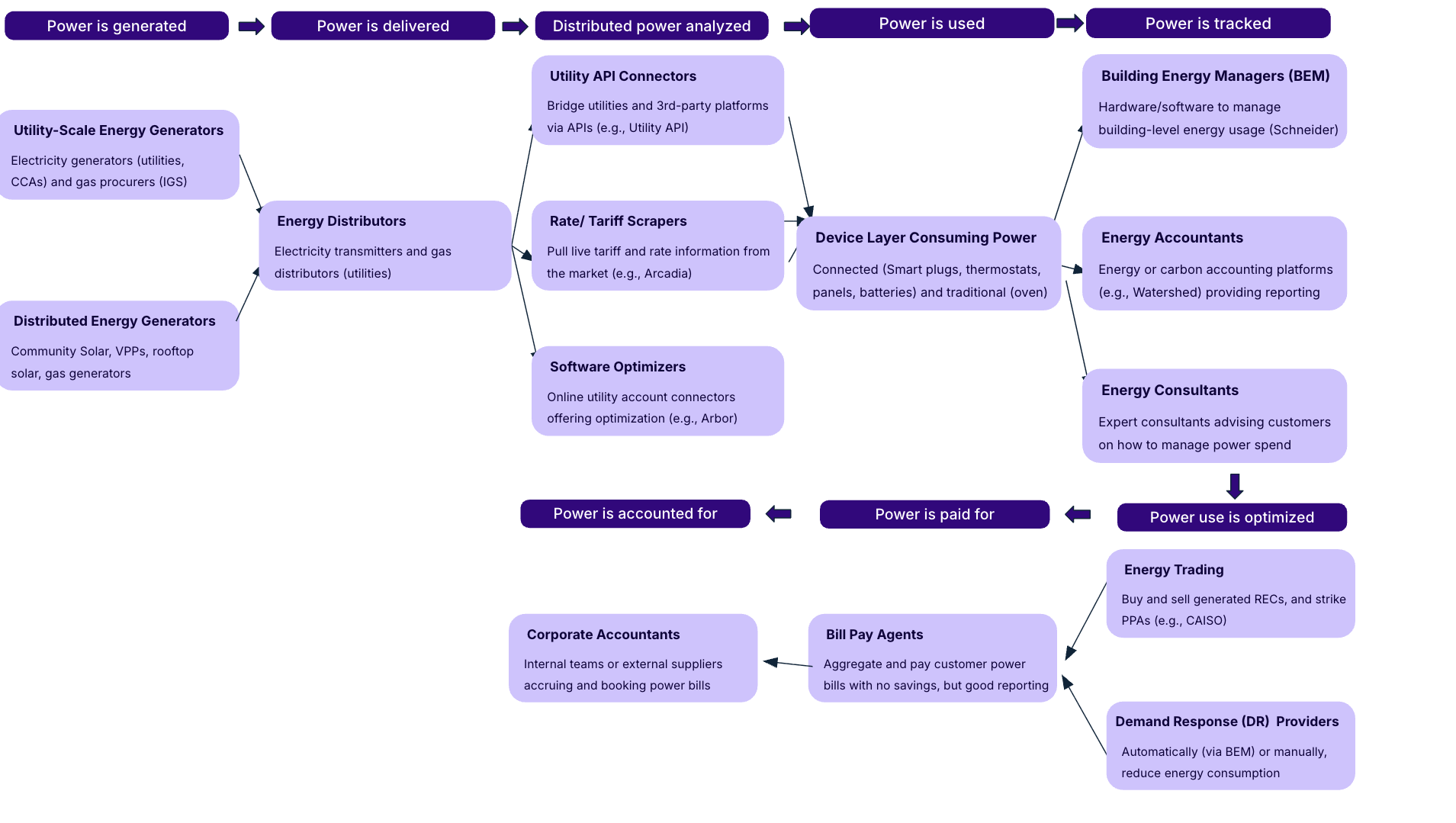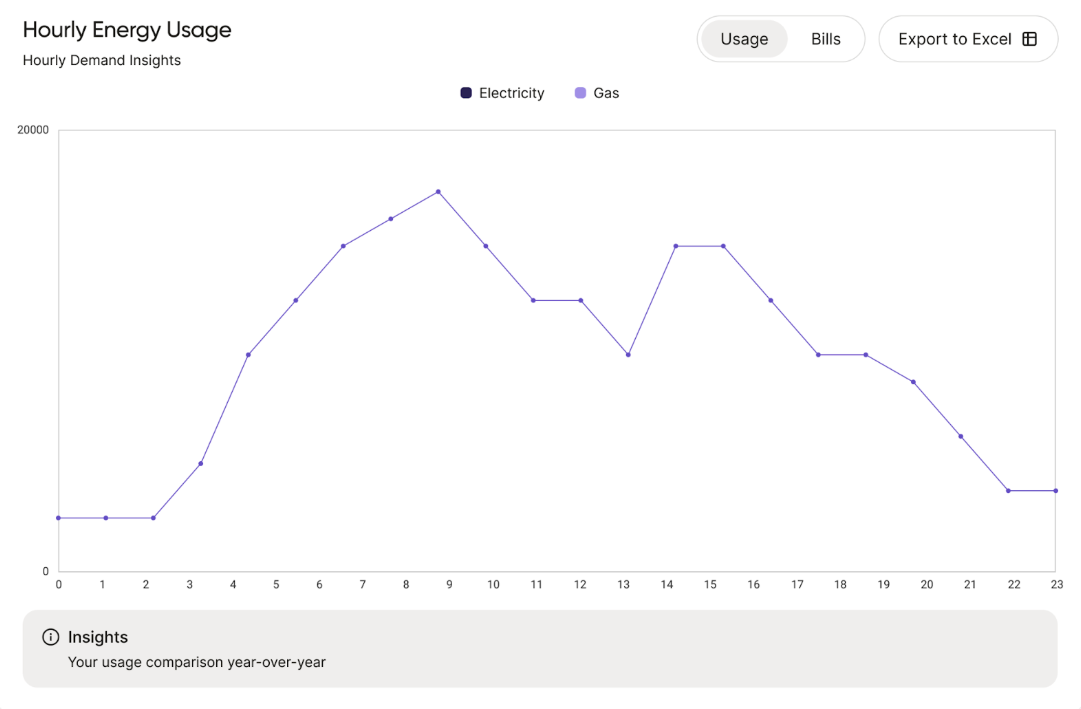How to Submit Loss of Revenue Form: Claiming Cash Back from Utilities

Introduction
Power outages can cause significant revenue losses, especially for restaurants, property managers, and contractors. Many businesses don’t realize they may be eligible for compensation. This guide explains who qualifies, what types of losses are covered, the key utility policies in California, and how to file a claim. At TrueMeter, we’ve helped many operators navigate this process successfully, and here’s what you need to know to get started.
Determine Eligibility and Covered Losses:
Before starting a claim, it’s critical to understand whether you qualify and what types of losses can actually be compensated. Many businesses skip this step and face delays or denied claims.
- Eligibility: Compensation is only available for outages caused by utility negligence. Outages due to natural disasters or third-party damage are not eligible.
- Covered Losses: Utilities will only cover direct losses such as spoiled food or damaged equipment. Lost revenue is not covered and must be pursued separately through your Business Interruption Insurance.
These two factors determine whether you can move forward. If you don’t meet both criteria, a claim will not be successful.
Who Can Get Compensation?
The most important step before filing a claim is confirming whether you qualify. You’ll save a significant amount of time if you understand these two items.
- Eligible: Businesses impacted by utility negligence, such as equipment failure or improper maintenance.
- Not Eligible: Outages caused by weather, natural disasters, Public Safety Power Shutoffs (PSPS), or third-party damage (for example, a car striking a power pole).
If your situation doesn’t fall under “Eligible,” you will not be approved for compensation.
What Losses Are Covered:
Understanding what utilities will and won’t pay for is just as important as knowing if you’re eligible. Coverage is limited, and we’ve seen many operators surprised by what isn’t included.
- Direct Losses (Limited Coverage): Utilities may compensate for tangible, immediate losses such as spoiled food or damaged equipment directly caused by the outage. Documentation is required, and claims are reviewed closely.
- Not Covered: Lost revenue is never covered under utility compensation programs. Businesses must rely on their Business Interruption Insurance to recover income lost during downtime.
Keep this distinction in mind—submitting claims for lost revenue will be denied, but properly documenting direct losses gives you the best chance of recovery.
How Utilities Handle Losses
Each utility sets its own policies, and compensation rules vary. In California, here’s what businesses can expect from the major providers:
- PG&E: May compensate for outages caused by utility negligence. Also offers a Storm Inconvenience Bill Credit if power is out for more than 48 hours.
- SCE (Southern California Edison): May cover direct damages (such as spoiled food or equipment) but not lost revenue. Offers a Service Restoration Guarantee—a $30 bill credit if power is not restored within 24 hours.
- SDG&E (San Diego Gas & Electric): Policies are similar to SCE. Some coverage for damaged property, but no compensation for lost business income.
While most states take a similar approach, these examples highlight how compensation works for California businesses. Always review your utility’s specific policy before submitting a claim.
Required Documentation
To avoid delays, it’s essential to prepare all required documents before you begin the claims process. Having these ready up front will make your submission smoother and reduce back-and-forth with the utility.
- Completed Claim Form – Download from your utility’s website and fill out in full.
- Proof of Loss – Receipts, invoices, payroll records, or bank statements showing the financial impact.
- Business Tax Records – Used to verify the scale of loss and support your claim.
- Photos or Evidence of Damage – If equipment or property was damaged, visual documentation strengthens your case.
- Copy of Utility Bill – Confirms your active service at the affected location.
Gather these items at the very beginning of the process. Submitting an incomplete claim is one of the most common causes of delays or denials.
Timeline
Most utilities require claims to be filed within 30–90 days of the outage. Once submitted, processing usually takes 30–60 days, though this varies by provider. If your claim is denied, you generally have 30 days to file an appeal.
TrueMeter’s AI Energy Manager automatically submits and tracks service requests including submitting loss of revenue forms.
FAQs
Do I need an inspection to validate my claim?
In some cases, yes. Utilities may request site inspections, photos, or supporting documentation before approving compensation.
Can I get reimbursed for lost revenue during an outage?
No. Utilities only cover direct losses such as spoiled food or damaged equipment. Lost revenue must be handled through your Business Interruption Insurance.
Resources
Learn more about energy savings
Stay up to date with our latest publications.


